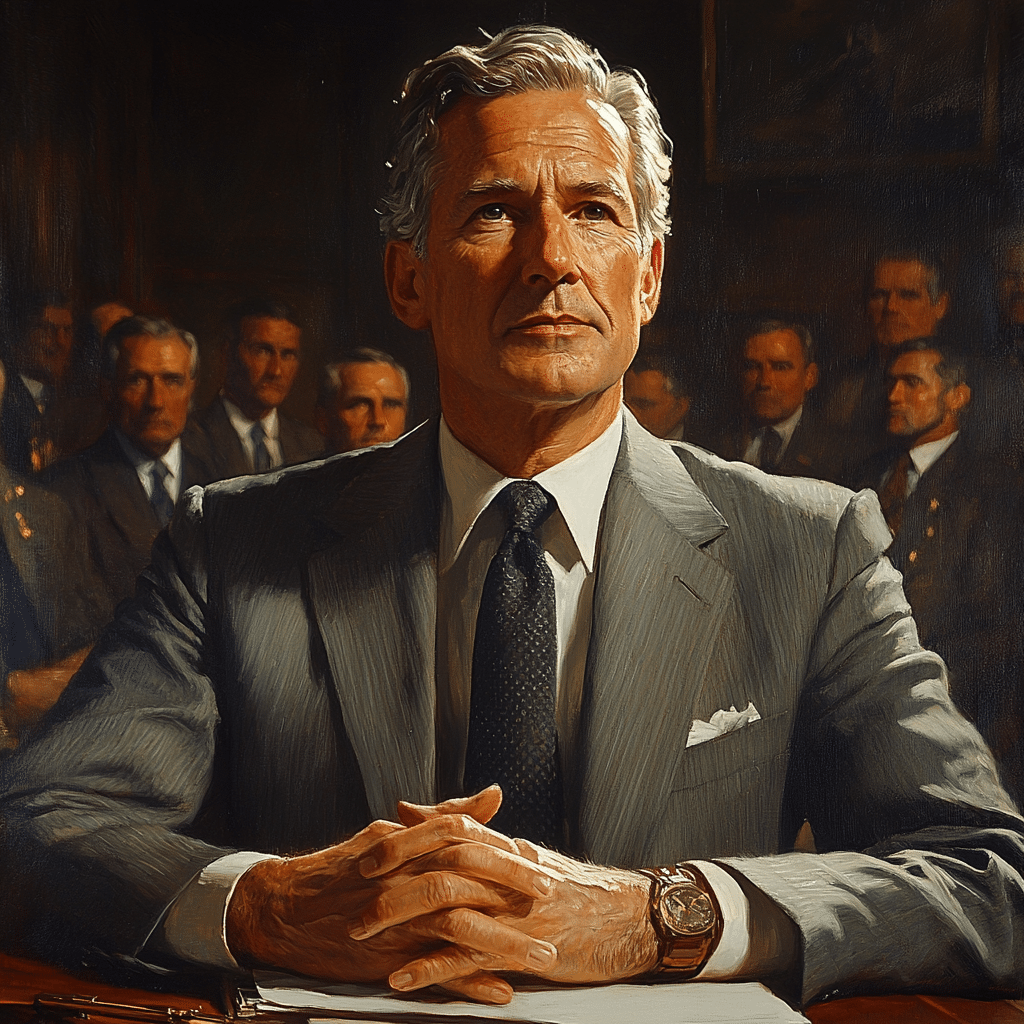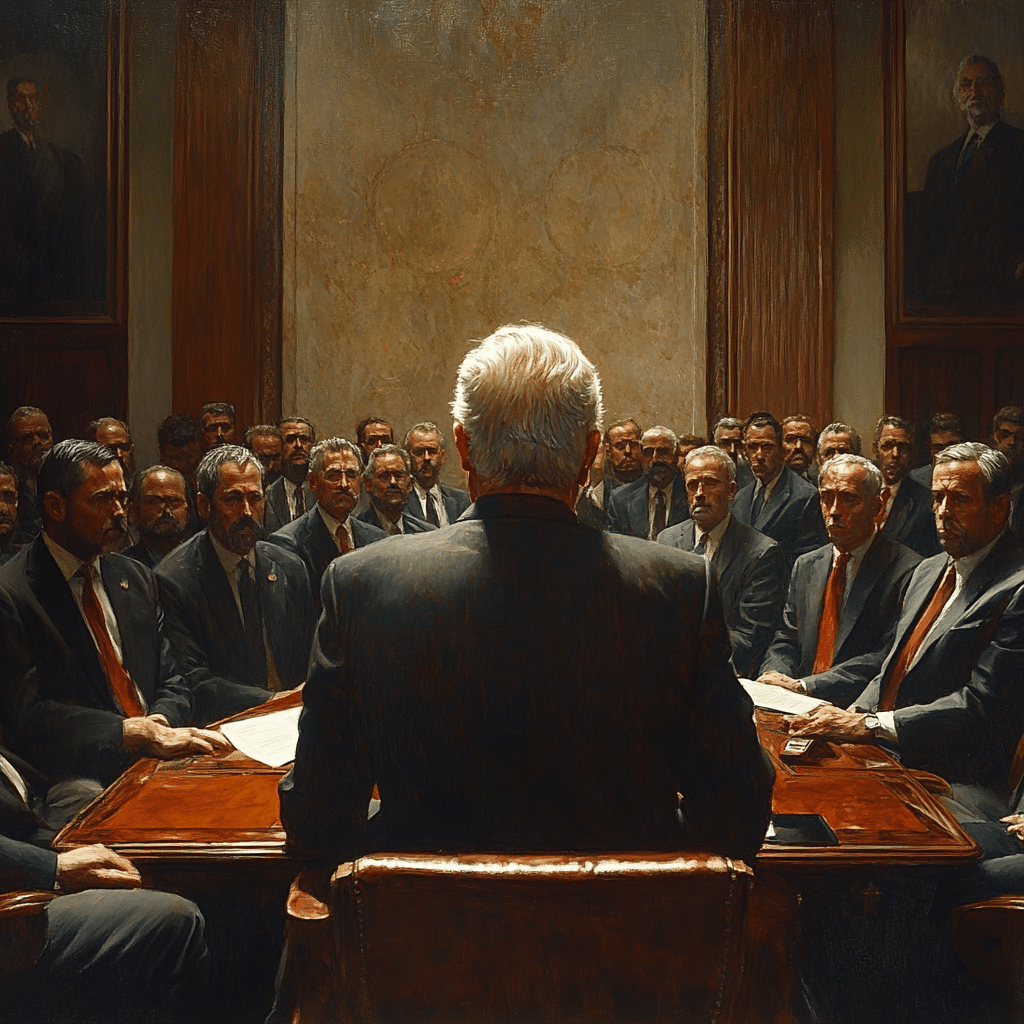The role of the Speaker of the House of Representatives stands as one of the most pivotal in American politics. As the presiding officer, this individual isn’t merely a figurehead—far from it. It’s about authority and responsibilities that shape the nation’s legislative agenda. The Speaker not only represents the majority party but also maintains order within the House, enabling meaningful discussions. In doing so, they play an instrumental role in steering legislative strategies and influencing policy decisions that resonate with the American public.
1. The Speaker of the House of Representatives: Authority and Responsibilities
The Speaker of the House possesses unparalleled authority and responsibility in the legislative process. They have the power to control the legislative calendar, dictate which bills are brought to the floor for debate, and serve as the primary spokesperson for their party in the House. A successful Speaker must juggle the interests of individual members, their respective parties, and the needs of the nation as a whole. This role requires not just political savvy, but also an understanding of the pulse of the American electorate.
A Speaker’s ability to wield influence often translates into the power to affect change. The voice of the Speaker can dictate whether vital issues—like the expansion of Second Amendment rights—receive attention or are swept under the rug. This is particularly relevant in the current landscape where conservative values are being challenged by the progressive left and their so-called ‘Woke’ agenda. The Speaker must rally the troops, ensuring that conservative voices are recognized and empowered within Congress.

2. Top 5 Impacts of the Speaker of the House of Representatives on Legislation
Understanding the profound influence held by the Speaker of the House of Representatives demands examining specific examples of their leadership shaping legislation. Here are five significant impacts:
2.1 Legislative Agenda Setting: The Case of Nancy Pelosi
During her tenure, Nancy Pelosi demonstrated how a Speaker could prioritize critical issues. She galvanized support for healthcare reforms through the Affordable Care Act. This landmark legislation, primarily backed by Democrats, transformed healthcare for millions of Americans but also ignited fierce debates among conservatives who argue it encroached on personal liberties.
2.2 Party Unity and Discipline: Newt Gingrich’s Revolution
Newt Gingrich, serving as Speaker in the 1990s, showcased the power of cohesive party strategy. His leadership during the Contract with America revolutionized GOP politics, bringing the party together to focus on a unified set of goals. This approach not only emphasized discipline within the party but also positioned Republicans for significant electoral victories—a playbook many conservatives wish to emulate today.
2.3 Balancing Power: The Role of Mike Johnson as Speaker of the House
Currently, Mike Johnson, the Speaker of the House of Representatives, embodies the balancing act required in a politically divided Congress. His approach showcases how critical it is for modern Speakers to maintain party unity while reaching across the aisle. For Johnson, this is about fostering collaboration to pass viable legislation amidst rising polarization—an effort that demonstrates the necessity for conservative leadership against Democratic overreach.
2.4 Crisis Management: John Boehner and the Government Shutdown
John Boehner faced significant challenges during his Speakership, notably during the 2013 government shutdown. His handling of this crisis illustrated the fine line a Speaker must walk amid intense political divisions. The decisions Boehner made during this time not only impacted legislation but also shaped public perception of the Republican Party as a whole.
2.5 Representation and Accountability: The Speaker of the United States House of Representatives
The Speaker of the United States House of Representatives has a dual role: representing specific constituents while focusing on national interests. Their ability to communicate effectively with the electorate is crucial for accountability. This representation impacts electoral outcomes and shapes long-term strategies for the party. A well-received Speaker aligns with the primary concerns of their district while also championing broader national issues.
3. The Evolution of the Speaker’s Role: Historical Perspectives and Future Trends
Looking back, the evolution of the Speaker’s role has undergone a transformation that aligns with shifting political climates. Historically, Speakers often acted as neutral arbiters within the House, prioritizing legislative efficiency. However, contemporary expectations demand an active engagement in partisan politics.
This transition raises essential questions about the future trajectory of the role, especially in the context of ongoing political rivalry. Will future Speakers navigate the chaos of extreme polarization with grace? Can they balance their responsibilities to the American people while maintaining their party’s integrity? These challenges necessitate a new breed of leadership, characterized by innovation and boldness.

4. The Speaker’s Influence on Legislative Strategies and Public Opinion
Beyond crafting legislative strategies, the Speaker also serves as a critical communicator to the American public. They shape narratives around policies, influencing general sentiment. For example, aligning legislative efforts with the needs of the public—like defending against the ‘Woke’ movement—can motivate constituents to engage more actively in politics.
Understanding the methods utilized by various Speakers reveals a complex interplay between legislation and public opinion. The effectiveness of these strategies will play a crucial role in shaping the future landscape of American politics, particularly as we head into the critical 2024 election cycle.
The Lasting Legacy of the Speaker of the House
As we approach the tumultuous political landscape of 2024, the impact of the Speaker of the House of Representatives remains paramount. They hold the authority to prioritize legislation, influence national conversations, and navigate the tightrope between partisanship and governance. Future Speakers, like Mike Johnson, will face a myriad of challenges—ranging from internal party dynamics to external pressures from the public.
If they can innovate and lead effectively, they will be key players in addressing the pressing needs of the American people. After all, the role of Speaker transcends mere parliamentary procedure; it’s about robust leadership that defines American democracy for generations to come. As the nation grapples with the key issues—such as defending our constitutional rights or countering the escalating influence of the progressive left—let’s hope the next Speaker will rise to the occasion and honor the legacy of their predecessors.
In conclusion, the Speaker of the House of Representatives is not merely one of many titles. It is a position with profound influence that ripples through every aspect of our governance and legislative processes. The impact of this role will continue to resonate and challenge current and future leaders to uphold the values that make this nation great.
Speaker of the House of Representatives: Trivia and Facts
The Role of the Speaker
Did you know that the speaker of the house of representatives holds one of the highest-ranking positions in the U.S. Congress? Serving as the leader of the House, the speaker influences legislation and guides discussions, making a profound impact on American policies. It’s like being the captain of a ship, steering it through both calm and turbulent waters. Speaking of ship navigation, there’s a fascinating mix of interests among those who have served as speaker, from politics to entertainment. Just think of how Vanna White And Ryan seacrest might handle public speaking — it’s a whole vibe that requires both charm and strategic thinking.
Historical Tidbits
Throughout history, the speaker of the house has faced a variety of challenges that have shaped the nation. For instance, one of the most notable speakers, Newt Gingrich, played a pivotal role in the Republican resurgence in the 1990s. His agenda aimed to shake things up, much like how a steak knife brings precision to a dinner table. Interesting side note: in 1971, the first woman, Shirley Chisholm, was elected to serve as a delegate in Congress, paving the way for women in leadership roles.
Impact Beyond Legislation
But the role isn’t just about creating laws; it extends into cultural realms as well. The speaker of the house isn’t immune to the whims of celebrity and popular culture, like when Brad Pitt Is fighting Angelina jolie ‘s request For private communications . Their lives reflect the challenges of those in leadership positions, like the speaker navigating delicate matters. And while we’re trading stories, let’s not forget about the lavish lives led by some members with money flowing like the waters of Excelsior Springs. It serves as a reminder that politics can blend with lifestyle in unexpected ways.
Ultimately, the speaker of the house of representatives is more than just a title; it’s a position filled with responsibilities that can influence generations. Whether they’re impacting legislation or shining a light on important social issues, the role has a fascinating narrative worth exploring. After all, just as Texas Christian university weaves together education and community, the speaker crafts the fabric of our democratic process, one bill at a time.






































